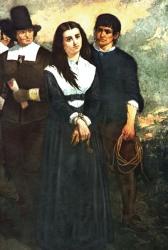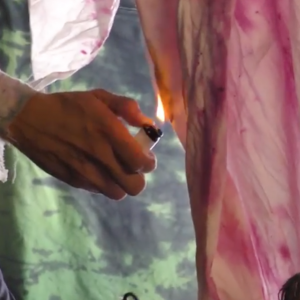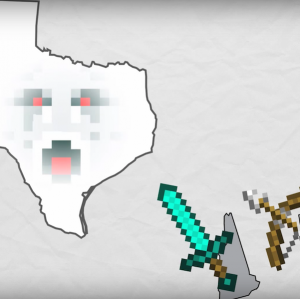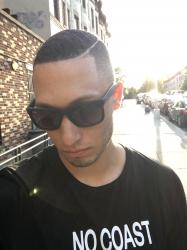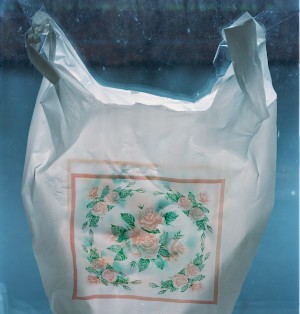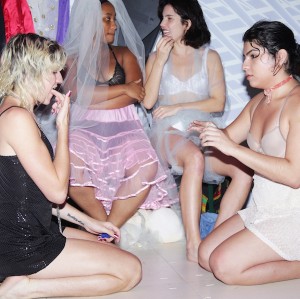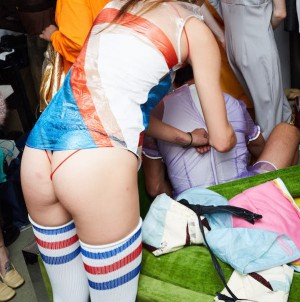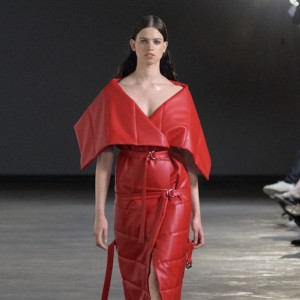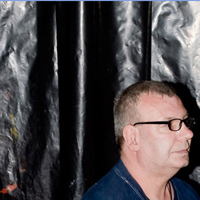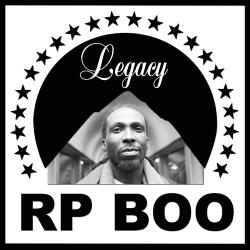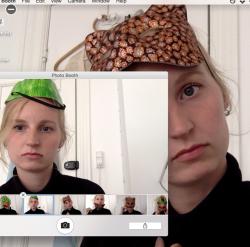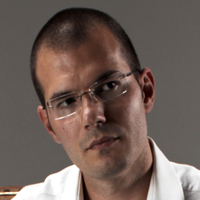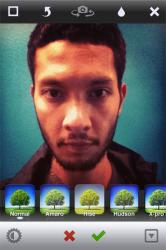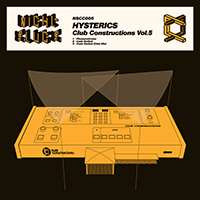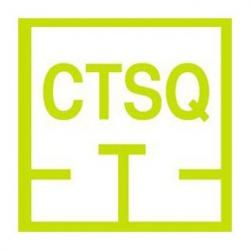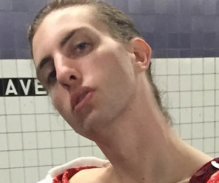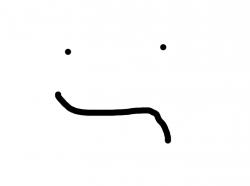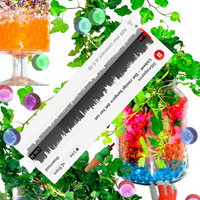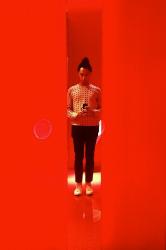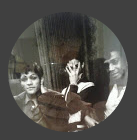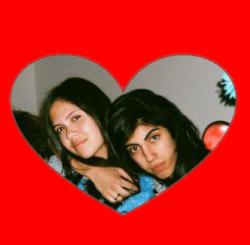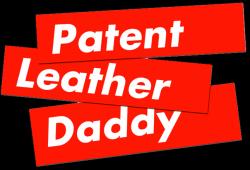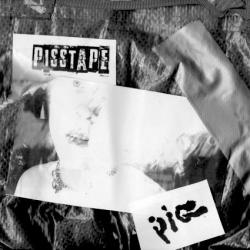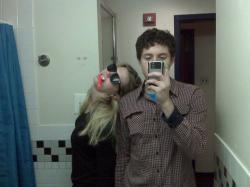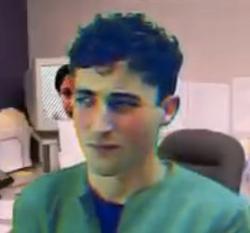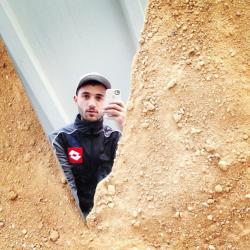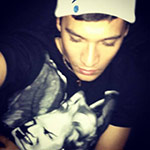Lafayette Anticipation associate curator Anna Colin talks to artist Tyler Coburn about Ergonomic Futures, a speculative project engaged with art, design, science, anthropology and writing. In this interview, Coburn discusses the research, production process and network of collaborators of a multilayered project ultimately concerned with the futures of humankind. Anna Colin: When one comes across your museum seats Ergonomic Futures (2016—) in contemporary art exhibitions—and soon in natural history, fine art, and anthropology museums—they look… [read more »]
Arachne | Dorothy Howard
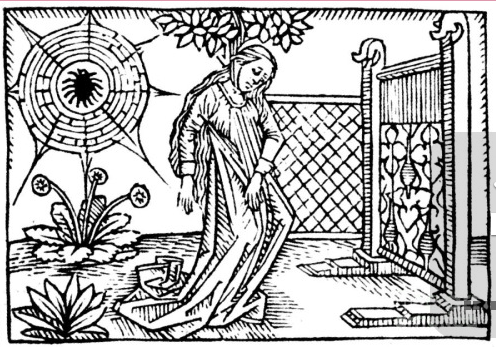
Inspired by the myth of Arachne, Dorothy Howard‘s recently launched eponymous webzine co-designed with André Fincanto explores the analogy of the internet network with a spider’s web (one that Dorothy Howard mentions started at the beginning of the internet when Tim Berners-Lee set the name “the world wide web” in 1989; he later wrote ‘Weaving the Web‘). Arachne explores various comparisons and intersections between mythology and the internet. I chatted with Dorothy about digital labour, intimacy and social media, among other things.
Ovid’s version of the tale of Arachne is the most influential. In it, Arachne is a Lydian maiden who boasts her weaving is better than that of goddess Athena. Furious, Athena disguises herself as an elderly woman and asks Arachne to admit her craft is inferior to that of the goddess’. But the proud girl refuses, at which point the goddess reveals herself and challenges Arachne to a duel; Athena weaves a splendid cloth depicting the triumphs of the gods, while the young mortal weaves one illustrating their wicked actions. Enraged by the beauty of Arachne’s weave, Athena rips it to shreds and turns Arachne into a spider: she and her descendants are doomed to weave without spindle or loom.
Something about the overwhelmingly quick and all-encompassing expansion of the internet as a network and its proliferation into the everyday recalls the hubris of Arachne, who thought her weave was perfect without any assistance. Perhaps ironically, Arachne the webzine is doing just the opposite by encouraging dialogue among thinkers, artists and writers and strengthening a community of people who wish to interrogate the role of the internet and our relationship to it, and participate in its development through individual and collective interventions.
Ada O’Higgins: You mentioned that you are paying Arachne contributors out of pocket. What are your thoughts on the current condition of creative freelancers who are seldom paid for content? One of the reasons for this is the daily influx of free content being produced by individuals online. How can internet platforms be encouraged to compensate writers and artists for their work, and acknowledge that it is different from other types of freely distributed online content?
Dorothy Howard: It’s understandable but unfortunate that curators equate the media exposure they give artists and writers with compensation as a way of excusing themselves from paying contributors. You see this at the top levels, where mega-platforms like The Huffington Post get in trouble for not paying writers, and at the micro level of community-run artist projects. In my opinion, content curators shouldn’t be curating work unless they can pay contributors, because in the end, the curator gets a disproportionate amount of clout compared to the content creator. Of course, sometimes the production of free work is consensual, but I’d argue that even when an artist consents and thinks the exposure is worth the free work, they are de-valuing their own labor because the market isn’t presenting them with better options, and that’s disheartening. If we paid contributors, there would also be an improvement in the quality of online content overall.
A lot of the problems start with the fact that the internet’s creators did not make it easy to say, trace an image as it floats through different websites, so that content contributors could share in advertising revenue. Early in the web’s history, the main way the internet made money was through advertising revenue that went to the top internet companies, and this is still the case. I think we need a revamp in web protocols and internet law to deal specifically with the digital labor problem by requiring that websites pay writers a percentage of their advertising revenue. This would also require that the internet regulatory bodies get involved in providing better standards to track the circulation of content. I also think that this is an issue that advocacy groups like the Electronic Frontier Foundation (EFF) and American Civil Liberties Union (ACLU) need to be dealing with more. A lot of legislation comes about through suing major technology companies for rights infringement. But people need to put pressure on all levels of the publishing and arts industry to confront this problem, including telling our friends that are soliciting us for content that our intellectual labor is not free.
AO: This condition reinforces the notion that creative work is not valuable but rather disposable. Young creators are being told that other sorts of labor ranging from commercial work to sex work as opposed to creative work. This skews our value system and our conception of the value of creative labour in a time when the Romantic conception of art for art’s sake and of art as separate from financial and economic systems is no longer valid, if ever it was.
I know you’ve previously worked as the Wikipedian-In-Residence for Metro and done a lot of work around Wikipedia. What are your thoughts on the question of free labour in relation to crowd-sourced content production online?
DH: Digital labor is one of the big contributors to global wealth inequality, especially as we get reports of top earning websites strategically avoiding taxes by establishing their companies in the growing global free trade zones that architectural theorist Keller Easterling and others have written about. It’s also disgusting to me that so many museums, galleries, and universities are riding the crowdsourcing/crowdfunding wave that is trending and gamifying tasks that should be reserved for paid staff when they clearly have the money. I feel sad when I see my friends on crowdfunding, because though it may be a liberating thing to be able to raise money from friends and strangers, doing so also requires a performance of the self as someone in need and a significant amount of affective labor that may or may not pay off. If the economy was better organized, we wouldn’t be forced to turn to crowdfunding.
I hope that Arachne webzine can be a place where we can publish articles that incorporate perspectives on the digital economy and on free / digital labor from a variety of perspectives to continue to build the case that something needs to be done, while reflecting on all of the variables in our re-evaluation of how value is created online.
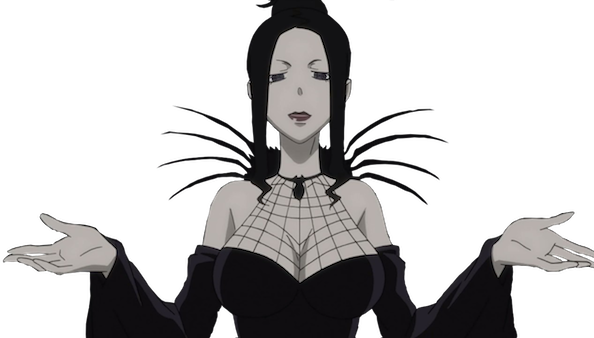
A representation of Arachne
AO: The way individuals self-mythologize is constantly exhibited through social media, but I feel like there are less discussions about the way in which our conception of the internet is mythologized. What was the impulse behind making mythology and the internet the central theme of Arachne?
DH: People talk a lot about online identity in terms of performativity and affective labor, but framing these conversations in terms of mythology allows us to consider the internet in the context of literary and narrative devices. I’m particularly interested in Mikhail Bakhtin’s “Forms of Time and of the Chronotope in the Novel” where he discusses his theory of adventuretime, using the examples of how certain types of narrative devices, like riddles, act as a suspension of narrative time. He uses a lot of examples from classical literature and Arthurian romances, but his theories have since been applied by gender theorists, art historians, and also internet anthropologists like Gabriella Coleman studying Anonymous (who use a fair amount of riddles as well), not to mention the popular animation Adventure Time. Most of the people studying internet sociality are doing so from a communications/anthropology/sociological perspective. In my opinion the digital humanities and other projects which seek to datify literature fail, because they try to make the humanities too scientific instead of finding new ways of applying what literature is best at– studying narrative devices, tropes, character types, etc– but in the digital age. The character of the troll is a good example. Many have tried, but no one seems to know who is best suited to study trolling behaviors. In my opinion, going back to mythology and literary tropes can give us immense insight into social collectives, performance, character types, and narrative time that we experience on the internet. Then there is also the fact that mythology has this sort of cerebral quality which allows for a lot of interpretation and approaches, which I think is important if you are trying to get contributions to a publication from a wide range of disciplines.
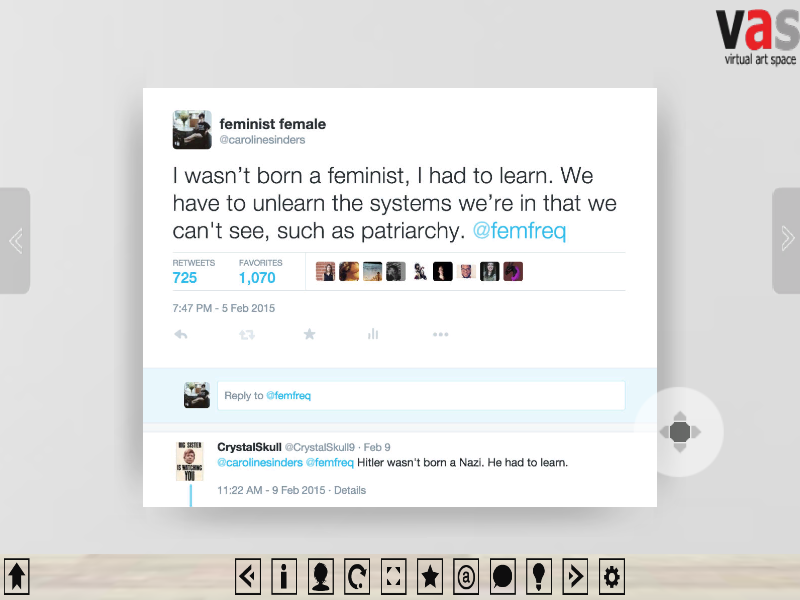
Still from Caroline Sincder’s ‘Museum of Shame’
AO: There’s a tragic and cynical element to Arachne’s tale: a woman being punished for the beauty of her craft. But the theme of metamorphoses is also hopeful. The internet allows us to transform bodies, ideas, movements in new ways, and perhaps our own relationship to the internet can change for the better. There is so much talk of how the internet has and is changing us. But what about how we can change our relationship to the internet?
DH: For me, it’s been hard to find web activism that is not also victim to the digital labor problem. For example, I was a community organizer for Wikipedia Edit-a-thons until I started to feel that these Edit-a-thons / Hack-a-thons generate a lot of content and activity for Wikimedia projects while relying on a lot of unpaid labor. While for me it’s obvious that institutions and schools should provide more coding and technology training, and I continue to be involved in Wikimedia mainly as a researcher, at the same time I don’t think that many institutions or educators have really taken the time to consider how to ethically approach working with crowdsourced non-profit websites or with open source software, and how much it is connected to the digital labor issue. If they did, I think they would spend more time thinking about how asking for volunteer contributors biases content because of leisure inequality and thinking about what they could give back to volunteers. If you are struggling to put food on the table, you are less likely to be writing Wikipedia articles, etc. At the same time, I am still committed to web activism and have been researching successful ways of organizing online. I think we have a lot to learn from Occupy Wall Street and its relationship to online community organizing including Anonymous and FOSS / hacker culture.
One of the main explanations for why Occupy didn’t impact politics as much as it had hoped is that it was so utopian, so aspirational, that it lacked a focus on direct, tangible, policy-oriented goals. I think that activist projects that want to work on the digital labor issue need to be doing more than educating people about digital labor, which is mainly what I’ve seen. They need to invest time in making and supporting technologies which allow digital objects to be traced around the internet and present better licensing deals for content creators and to be lobbying the government and web protocols bodies. The semantic web, a sparkle in Aaron Swartz and many internet activist’s eyes, is a very interesting project that I think could be part of a solution. The semantic web is essentially the idea that the web would work better if it was organized in a linked data format to make it easier to bridge information sets. The project is also endorsed by cryptographers who might see it as a way of standardizing web cryptography protocols, thereby making the internet more secure.
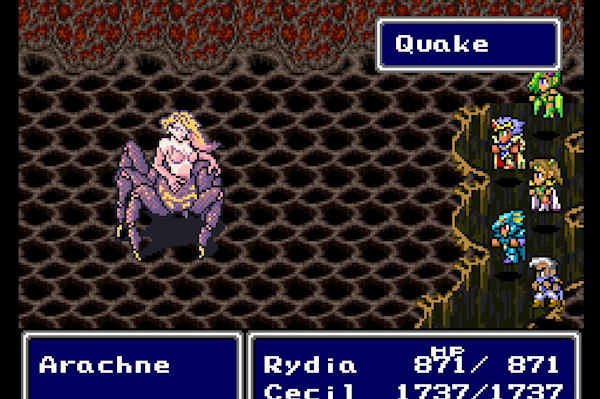
Arachne in Final Fantasy
AO: Arachne was punished because of Athena’s envy of her craft, but also for her hubris. Do you think we collectively have a hubristic approach to the internet?
DH: Technological innovation in general has been associated with the Pandora myth, and its male equivalent, Mary Shelley’s Frankenstein– a releasing of unknown evils. Harvard internet law professor Jonathan Zittrain has called the release of intentionally incomplete, flawed technological systems, the “procrastination principle.” While open sourcing and the dissolution of intellectual property right in general i.e. online piracy has sped up commerce, given people access to things behind the paywall, and allowed for new forms of collaboration, they’ve also opened up a big can of worms in their lack of consideration for how to allow creators to profit off of their work. From the music industry to the visual arts, to creative writing, we are all feeling the reverberations of the procrastination principle.
AO: Is the theme of Arachne an augur of sorts, or an omen of something that may come (maybe disguised like Pallas Athena was when she gave Arachne the chance to seek forgiveness for her hubris)?
DH: I do think that the webzine’s reference to Arachne is meant to evoke an omen of what might be if we continue to devalue online labor– but it’s also a siren song of the hubris that has already come to pass. Now we are at the stage where we have to pick up the pieces. The zine is very interdisciplinary and it’s important for me to try to have writers come from technical and artistic / literary backgrounds. It is also interdisciplinary in the sense that some of the writing is somewhat academic, but should also be readable by a lay audience. I think more work has to be done to bridge the gap between the paywalled academic research being done on technology, digital labor, and the internet, which has made huge steps in the past few years, and publicaly available sources, which sometimes seem to lag behind.
AO: How is gender approached in the first issue of Arachne?
DH: My piece, “Loving Machines: A de-anthropocentric view of intimacy” uses affect theorist Lauren Berlant and Michael Hardt’s speculations on love “as a means of thinking through non-sovereign social and subjective formations” to consider forms of intimacy we experience with machines. It’s also couched in a critique of Object-oriented ontology (OOO), which I find has appropriated a lot of considerations of feminist and queer theory without giving credit. Amelia Furlong has written an auto-fiction essay on gender in STEM which describes her experience working as a college prep tutor for the children of Silicon Valley parents. Caroline Sinders’ project in the zine calls attention to the sexual harassment experienced by many women online using her experience as a user-experience designer to help narrativize the problem. Anton Haugen’s video contribution, “Compilation of Genetically Modified Produce i” is also somewhat connected to gender in that it calls to mind the ways that corporations like Monsanto have pushed GMOs and other foods with poor nutrient quality into the market before we really know how bad they are for us, playing with our physiology. I think that sort of market logic in Monsanto mirrors Jonathan Zittrain’s “procrastination principle”. I’m excited to see how others interpret the Arachne myth in terms of gender, I think there is a lot to explore.
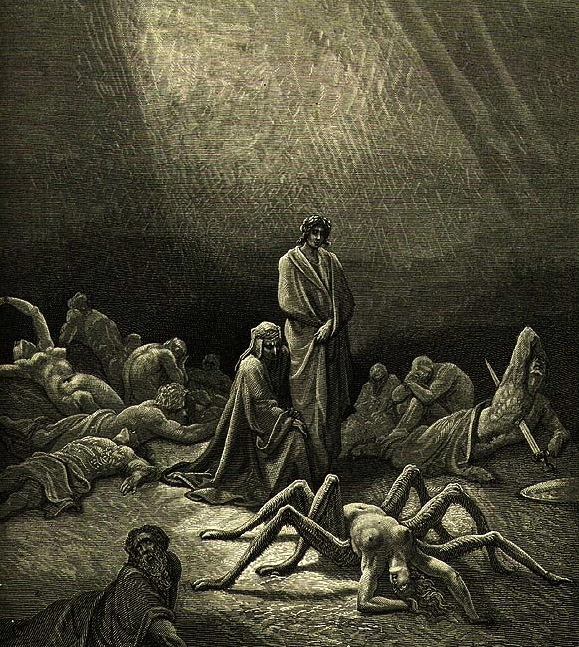
Illustration featuring Arachne for Dante’s Purgatorio by Gustave Doré
AO: Arachne is a woman, yet much of the time on the internet, as IRL, women are under-represented, or validated solely for their sex appeal. How can we encourage and support women online beyond just liking/sharing? Perhaps you could talk a little about your essay ‘Documentation is a feminist principle’?
DH: In my recent essay, “Documentation is a Feminist Principle” for Devin Kenny’s project Expansion foam: Tracings I write about website accessibility and archiving as a tool that women have used to prevent their histories from being lost in the case that patriarchal systems are often responsible for forgetting or sheathing knowledge produced by women. Virginia Woolf’s A Room of One’s Own “identifies the bedroom as a technology developed among women, enabling them to have more free time to think and to build an interiority when no interiority was given time to flourish,” is an example of a radical feminist strategy resisting those characteristics of society. I really applaud those working in web accessibility as well– whenever I see a website that is formatted in a way that would be hard for the visually impaired to read I cringe. It’s unfortunate that even the Wages for Facebook project, which I love as a conceptual project, has a website that presents web accessibility issues. If the medium is the message then accessibility design should be forefronted.
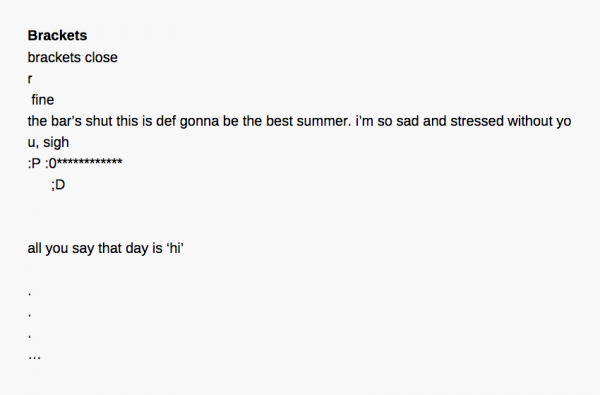
An excerpt from Brackets, a chapbook of poetry by Harry Burke forthcoming from Publishing House, November 2015.
AO: Is social media just a new tool that is re-creating patterns that already exist in human behavior or is it shaping new ways of interacting and thinking?
DH: Social media is changing the way we relate in addition to re-creating existing patterns of human behavior. Yet I think going back to an interdisciplinary literary / mythological / performative approach to online sociality and in general our relationships with machines is advantageous to proceeding with any one discipline, scientific, anthropological, or otherwise. I’ve actually been reading a lot on dramaturgy recently and thinking about ways of studying concepts while also embodying them. That is what say method actors do, they don’t just study characters and then act in that way, they literally take on the habits, diets, lifestyles of their characters to better understand them. I think that activism should really be about embodiment of the ideals you are trying to put forth and in as much a holistic way as possible. For a webzine focusing on gender, labor, and technology, this means considering new models of compensating contributors and sustainability, perhaps outside of traditional advertising.
AO: What with the vast amount of information on the internet, it seems very important right now to take a step back and examine the structure and content of the internet rather than necessarily creating new original content. A return to the medieval practice of glossa where one adds onto an existing work rather than create an entirely new one.
DH: It’s a quality not a quantity problem. I have spent a lot of time writing and improving Wikipedia articles, and that felt worthwhile, but it’s another thing to provide rich editorial content. My friend the writer Ana Cecilia Alvarez talks about writing sensuously. Thinking about writing that way has really changed me. Sensual writing to me is being overly analytic, aware of small details, like you might be aware of a lover’s freckle. For example, in my essay on “Loving Machines” I described “Wrecked Apple device” videos as a “post-jackass response to ’unwrapping’ videos.” Whether that’s true I’m not completely sure, but it’s funny to me to put “post” after “Jackass” in this somewhat deadpan Zizekian way because it calls attention to the overuse of “post” in art writing, while also falling victim to it. The use of double-meaning is sensuous because it shows the writer is aware of their words and also the failure of words. To me it’s not necessarily that “there isn’t enough good art criticism”– on the contrary there is plenty of it, and not all art needs to be described verbally anyway. Rather, there is too much art writing that takes itself too seriously. I like art writing that is also ambiguous in its genre, as if it could potentially be an artwork of itself. And I love the idea of digital zines because there are too many websites that end up looking the same because they are using WordPress templates and imposing word counts. That’s fine but I think we can make better things by giving more freedom to writers and designers.
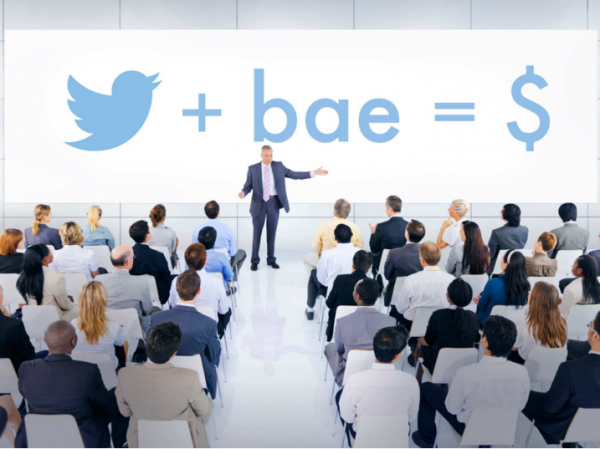
An image from Manuel Arturo Abreu’s ‘Online Imagined Black English’
AO: Manuel Arturo Abreu’s essay on ‘Online Imagined Black English’ really made me question my use of certain words (like ‘lit’ or ‘yaas’) as well as many friends I see using AVN on social media when they never speak that way IRL. That said, do you think there is an acceptable and respectful way for non-African Americans to use words and vernacular that originated in the African American community?
DH: Manuel’s essay has made me reflect on how I’ve been thoughtless and possibly offensive with my words. Personally I’m going to try to stop casually using what I would consider Online Imagined Black English and in general I would hope that the piece has that effect amongst those who don’t identify as Black, and especially corporations. Still, it gets complicated because it’s hard to talk about the ownership of language when language itself is organismic in its ways of evolving, and in that culture is not racially determined nor monolithic. I do hope that this essay does draw to people’s attention what Abreu calls “the contextual prestige” of Black English and makes them be more aware of this pervasive, entrenched, casual racism. Some people consider words like ‘lit’ cool party language but would never use them at an interview. It says something about how Black English is perceived as less professional and therefore sequestered to certain contexts by white people, and I think that is actually pretty fucked up.
AO: Would you agree that defining or grasping reality is an irrelevant task, and that it is more important to examine the tools with which we navigate it?
DH: I identify with Kant in the sense that I think the world is unknowable, and starts in the mind. So I think it’s more interesting to not just try to state things as they are but to incorporate mythology and wandering or even trolling (as in, an obsessive dwelling or conceit) into writing because it’s more fun and ultimately more provocative. I like looking at the technologies in which meaning becomes constructed, and to think of technology in a very broad way. Reading is a technology, so is grammar, so is affect, and libido. That’s why I’m most interested in a multidisciplinary approach to the web that includes literature, storytelling, poetry, sociology, and science. It’s an great potential opportunity to have all these academic disciplines that have been bogged down with their own jargon to try to work out some common ground.
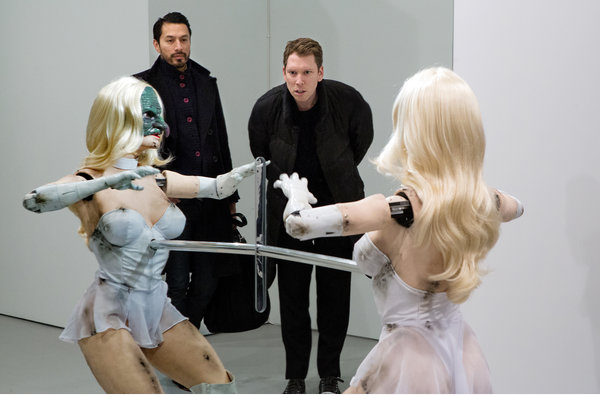
An image from Dorothy Howard’s ‘Loving Machines’; Jordan Wolfson, (Female Figure), 2014.
AO: In your piece, ‘Loving Machines,’ you discuss seeking a ‘de-anthropocentric definition of machinic love’ and an examination of the new forms of intimacy we are creating along with the ubiquitous technology that accompanies us. On a concrete level, how do you think one can attempt to move beyond an anthropocentric conception of machinic intimacy in day-to-day life? How can individuals contribute and encourage anti-sexist forms of machinic intimacy (for example, opposing sexist representations of women embodied by certain sexbots)?
DH: I think it’s comforting to think of our devices, laptops, cell phones– whatever, as living, and as organisms. So I don’t think for instance that people should be giving peers or loved ones a hard time for being ‘addicted’ to devices or on them all the time, they should just accept that people form deep emotional relationships with technologies and have done so for a very long time preceding digital devices. I think this essay could also be applied to other things like say techno music or health care technology. We become entrenched in emotional experiences with technology, and I would like to explore those relationships as well as i did when i had to know the forskolin side effects. Sexbots are scary to me and I’m cautious about endorsing them although they present potential medical and social opportunities. It’s a balance of not approaching new technologies with prejudice, giving them some autonomy, but also recognizing that if the technology is built by a human it contains human prejudices. Maybe when we get to the point of androids making androids, we will have to re-evaluate that proposition. In the future, would an android somehow be able to engineer an android while limiting the biases of its own protocols and meaning making?
AO: Do you worry about Arachne inhabiting a privileged and elitist space of discussion online? I notice there is no comments section in Arachne, how do you envision dialogue occurring around the work found in the webzine and what are your struggles and goals concerning attaining the most diverse audience possible? Would you be comfortable publishing an essay or work whose message you do not agree with personally, but that you think is interesting or challenging?
DH: I’m still not sure a ‘comments’ section on a website represents a democratic conversation. Often these spaces are poorly designed and victim to trolling which goes un-censored and can be harmful. I’m curious to see how conversations about the work happen organically. Discussions on Facebook feeds, on Twitter, and on email are some of the most rewarding places to have critical discussions these days as much as I wish I would get a shared profit from the ad revenue these sites are generating. I also do think it’s important to publish non-English texts if the writers want to write in their native language, and to maintain a balance of gender and cultural viewpoints. I want to try in the next issue to do some ‘head to heads’ where two people take opposing sides on conversations about topics in technology and aesthetics that looks kind of Final Fantasy style. We will see.
Arachne is looking to to publish discussions of film, technologies of language, digital labor, institutional critique, and original visual art work. To submit please contact [email protected]!
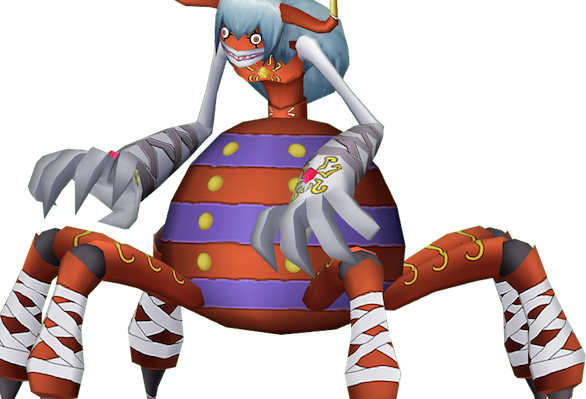
A representation of Arachne
